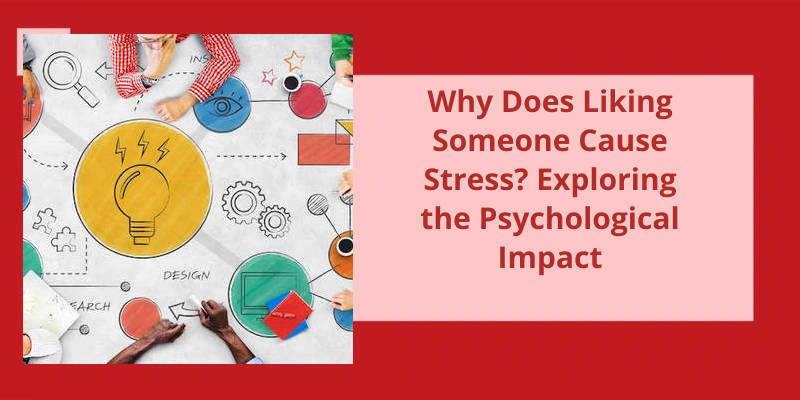They may feel compelled to forgive you even when they aren't ready, or they may start to question the sincerity of your apologies. So, should you apologize again? It's important to understand that seeking forgiveness is a delicate matter, and it requires careful consideration. It's a fine line between persistence and pestering, between genuine remorse and seeking validation. Understanding the impact of multiple apologies and recognizing the signs that warrant a second apology will empower you to navigate these delicate situations with empathy and authenticity. In essence, it's not about the quantity of apologies but the quality and appropriateness of your actions that determine whether you should apologize again.
Is It Sometimes Better to Not Apologize?
Sometimes, the question arises: should I apologize again? Knowing when to seek forgiveness is a delicate balance. There are situations where it may be better to refrain from apologizing altogether. If the circumstances were outside of your control or the mistake was truly trivial and honest, a heartfelt apology may not be necessary. Instead, it might be more productive to focus on finding a solution or moving forward. Recognizing when an apology isn’t warranted demonstrates emotional intelligence and saves both parties from unnecessary discomfort.
Continuously bringing up the past can prevent both parties from moving forward and may even perpetuate feelings of guilt or negativity. Instead, focus on learning from the experience, showing growth, and making a genuine effort to avoid repeating the same mistake in the future.
However, some situations may call for a different approach. Is it possible that waiting to apologize could be more beneficial? This article explores the potential merits of not immediately apologizing and delves into when it might be appropriate to delay seeking forgiveness.
Is It Better to Wait to Apologize?
Is it better to wait to apologize? If you do something that hurts another person, whether on purpose or by accident, you usually should apologize. The sooner you do, the sooner you can work on repairing the damage and rebuilding your relationship. However, there are instances where it might be better to wait before seeking forgiveness.
One situation where you might want to delay an apology is when the other person is still angry or upset. Emotions can run high in the immediate aftermath of an incident, and attempting to apologize before the person has had a chance to calm down can often be counterproductive. Instead, it’s important to allow them the space and time to process their emotions and thoughts before attempting to reconcile.
In such cases, a single apology may not be sufficient to mend the relationship. It may be more effective to take some time for self-reflection and work on changing your actions and attitudes before approaching the other person with a sincere apology.
This can be particularly important if the incident was a result of a miscommunication or misunderstanding. Taking the time to gather facts and reflect on the situation can help ensure that your apology is well-informed and genuine.
How to Effectively Communicate Your Apology
When it comes to apologizing, effective communication is crucial. Here are some key steps to ensure that your apology is sincere and well-received:
- Take time to reflect on your actions and understand why an apology is necessary.
- Acknowledge your mistake and take responsibility without making excuses or shifting blame.
- Express genuine remorse and empathy for any harm caused.
- Be specific in your apology, explaining what you did wrong and how you plan to make amends.
- Listen attentively to the feelings and concerns of the person you’re apologizing to.
- Offer a solution or a plan to prevent the same mistake from happening again in the future.
- Finally, give the person the space and time they need to process your apology and decide whether to forgive you.
Remember, a thoughtful and sincere apology can go a long way in repairing relationships and rebuilding trust.
It can be disheartening when someone doesn’t accept your apology or needs more time to process it. However, it’s important to remember that you can’t control their reactions. Instead, focus on controlling your own actions and staying calm in the face of rejection. Demonstrating your sincerity through consistent actions may eventually lead to the acceptance of your apology.
Should I Have to Keep Apologizing if They Don’t Accept Them?
Apologizing is an important act of acknowledging our mistakes and taking responsibility for our actions. However, it’s essential to recognize that the acceptance of an apology is beyond our control. Just because someone doesn’t accept your apology doesn’t mean you’ve to keep seeking forgiveness tirelessly. People have the right to refuse or need time to process their emotions before granting forgiveness.
However, your focus should shift towards managing your own emotions of rejection and hurt. It’s crucial to remain steady and calm in these situations, as becoming defensive or aggressive won’t help the situation.
Instead of continuously seeking forgiveness with words, it’s more effective to show your sincerity through consistent actions. Actions speak louder than words, and by demonstrating a genuine change in behavior, you may be able to rebuild trust over time. It’s important not to expect immediate forgiveness or brush aside the consequences of your actions, but rather give the other person room to heal and process their emotions at their own pace.
While it’s natural to desire forgiveness, it’s essential to realize that seeking forgiveness is about taking responsibility for our actions, not about controlling how others respond. Understanding this distinction can help you navigate the complexities of seeking forgiveness without becoming dependent on external validation. Ultimately, showing remorse, being patient, and maintaining consistent positive changes will contribute to the healing process, regardless of whether a formal apology is accepted or not.
The Importance of Self-Forgiveness: Explore the Idea of Forgiving Oneself and the Impact It Can Have on Personal Growth and Healing.
The importance of self-forgiveness is a crucial aspect of personal growth and healing. When individuals experience regret, guilt, or shame, it can be detrimental to their well-being and hinder their progress in life. By forgiving oneself, individuals can release the burden of past mistakes and focus on personal development.
Self-forgiveness allows individuals to acknowledge their imperfections and learn from their past actions. It enables them to let go of negative emotions and cultivate self-compassion, which is vital for building resilience and achieving emotional well-being. By forgiving themselves, individuals can break free from the cycle of self-blame and self-doubt, fostering a more positive and empowered mindset.
Furthermore, self-forgiveness can lead to profound transformation and healing. It allows individuals to grow from their experiences, make amends if necessary, and move forward with a renewed sense of purpose. By embracing self-forgiveness, individuals can cultivate self-acceptance and create a healthier relationship with themselves.
Overall, seeking forgiveness from oneself is essential for personal growth and healing. It empowers individuals to embrace their past, learn from it, and embark on a journey of self-improvement. By practicing self-forgiveness, individuals can experience deep healing, emotional resilience, and a greater capacity for self-love.
Conclusion
Oddly enough, excessive apologies can backfire and intensify the focus on our mistakes rather than fostering genuine forgiveness. Not only does this repeated act of contrition perpetuate a sense of guilt within ourselves, it also places an unnecessary burden on the person we’ve wronged. Instead, it’s imperative to gauge the sincerity and impact of our apology, allowing the wronged individual the space and time needed to process their emotions. Determining when to apologize again requires emotional intelligence, empathy, and an understanding that true healing takes time.






